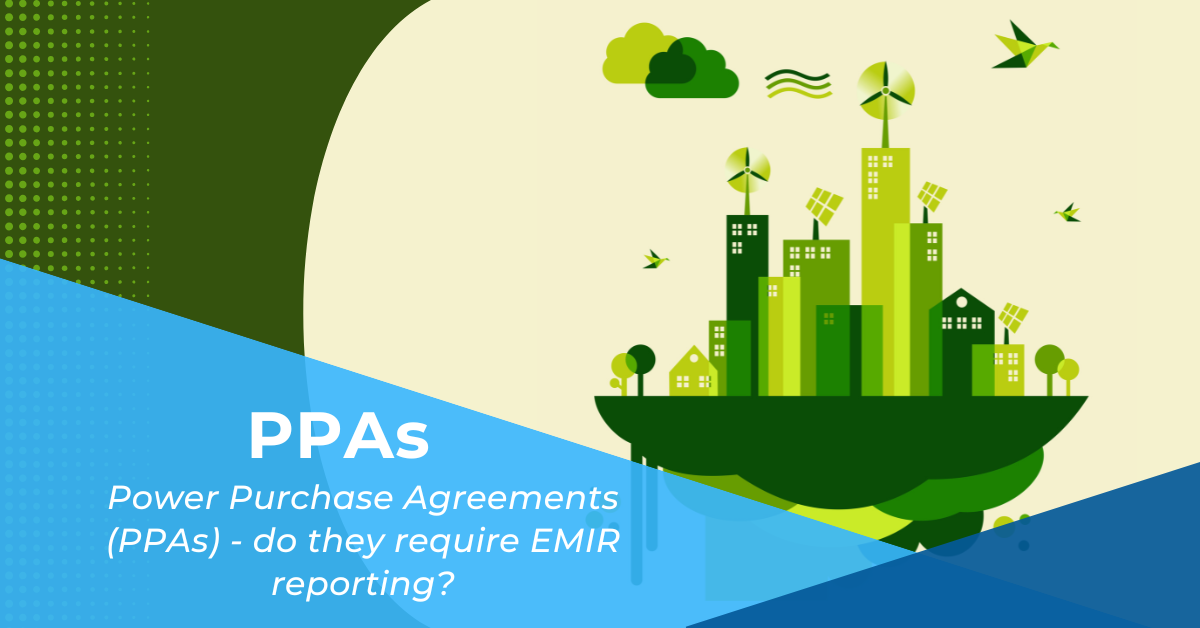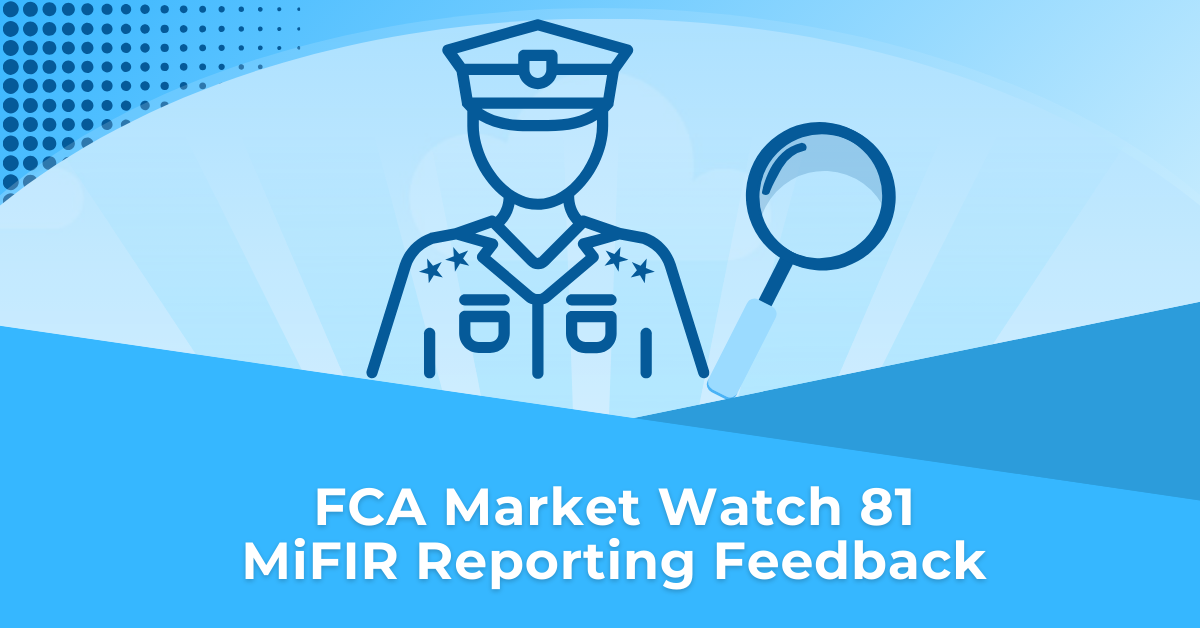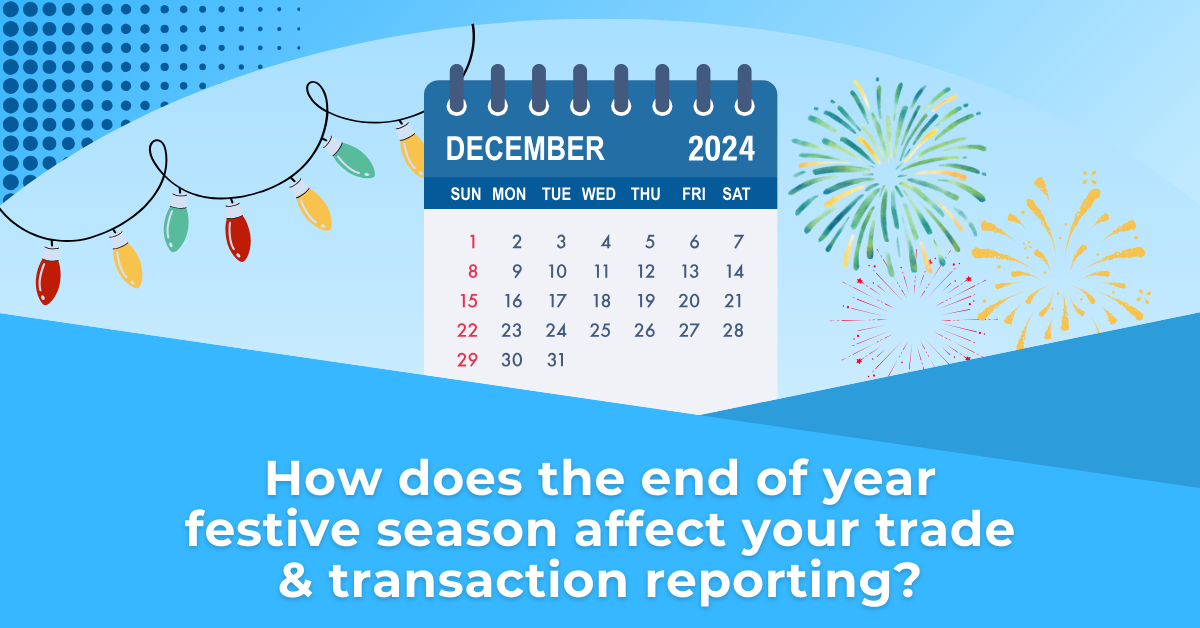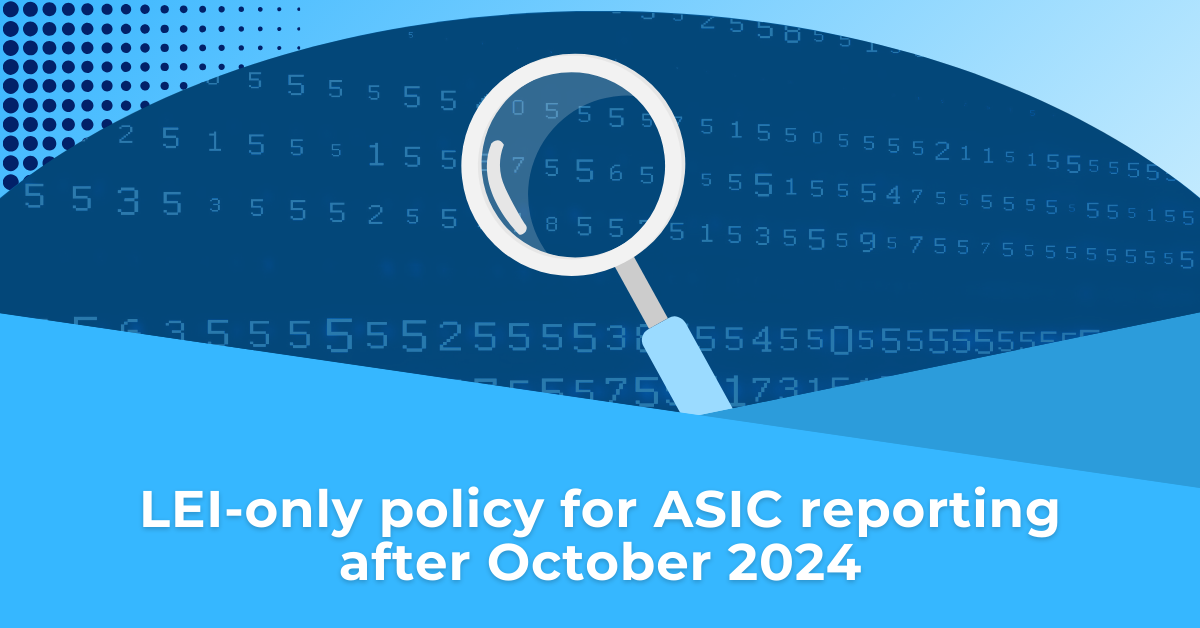EMIR Refit: Impact on Power Purchase Agreements (PPAs) Reporting
EMIR Refit marks a new era of regulatory oversight in the derivatives markets. Among its numerous amendments, EMIR Refit introduces crucial changes which will affect the reporting of existing Power Purchase Agreements (PPAs).
Why does EMIR Affect PPAs?
PPAs are integral to the renewable energy sector, facilitating the purchase of electricity by corporate buyers and other entities. While providing developers with revenue certainty and allowing buyers to secure stable source of clean electricity, PPAs drive investment in sustainable energy projects.
As financial derivative instruments (usually Contracts for Difference), PPAs fall under EMIR regulation, requiring compliance with reporting obligations and subsequent amendments/revisions to it.
PPAs contain unique contractual terms and provisions specific to the renewable energy sector which require careful interpretation and mapping to reporting fields in EMIR Refit.
What are the main challenges for parties of the PPA transactions in navigating the revised reporting landscape under EMIR Refit?
The Challenges of the EMIR Refit for PPA transaction counterparties
Format change. Re-reporting of outstanding transactions:
As EMIR Refit mandates a change in submission format (ISO20022), previously reported PPA trades that remain open for longer than 6 months after Refit comes into force will need to be re-reported in the new EMIR Refit format to comply with the updated reporting requirements.
This means:
- For EU – trades entered into before 26 April 2024, which remain open after 29 October 2024;
- For UK – trades entered into before 30 September 2024 which remain open after 29 March 2025
Will need to be converted into the EMIR Refit format and re-submitted.
Additional/ pre-existing but Modified Fields:
Commodities (General):- Base product
- Sub-product
- Further sub-product
Commodities (Energy):
- Delivery point or zone
- Interconnection Point
- Load type
- Delivery interval start time
- Delivery interval end time
- Delivery start date
- Delivery end date
- Duration (of the delivery period)
- Days of the week (of the delivery)
- Delivery capacity
- Quantity Unit
- Price/time interval quantity
- Currency of the price/time interval quantity
Other:
- Corporate sector of the counterparties
- Unique Product Identifier (UPI)
- Unique Transaction Identifier (The UTI isn’t new but follows new format and validation rules)
Recommendations
Counterparties to existing PPAs that were reported before EMIR Refit commencement but that will remain open until 6 months past the EMIR Refit’s commencement will need a plan and procedure for upgrading these transactions to contain the new EMIR Refit fields.
PPAs entered into after the EMIR Refit go live dates (29 April 2024 for EU and 30 September 2024 for UK) will need to include the additional fields from inception.
How do TRAction Help Their Clients with …
Addressing above challenges requires a comprehensive understanding of unique characteristics of PPAs, as well as deep insight into constantly evolving regulatory requirements. Collaborating with an experienced service provider with expertise in reporting under EMIR and its subsequent revisions, will help ensure accurate and efficient compliance.
Summary
If you are interested in learning more about how EMIR Refit may affect your reporting requirements please reach out to our team at TRAction.





